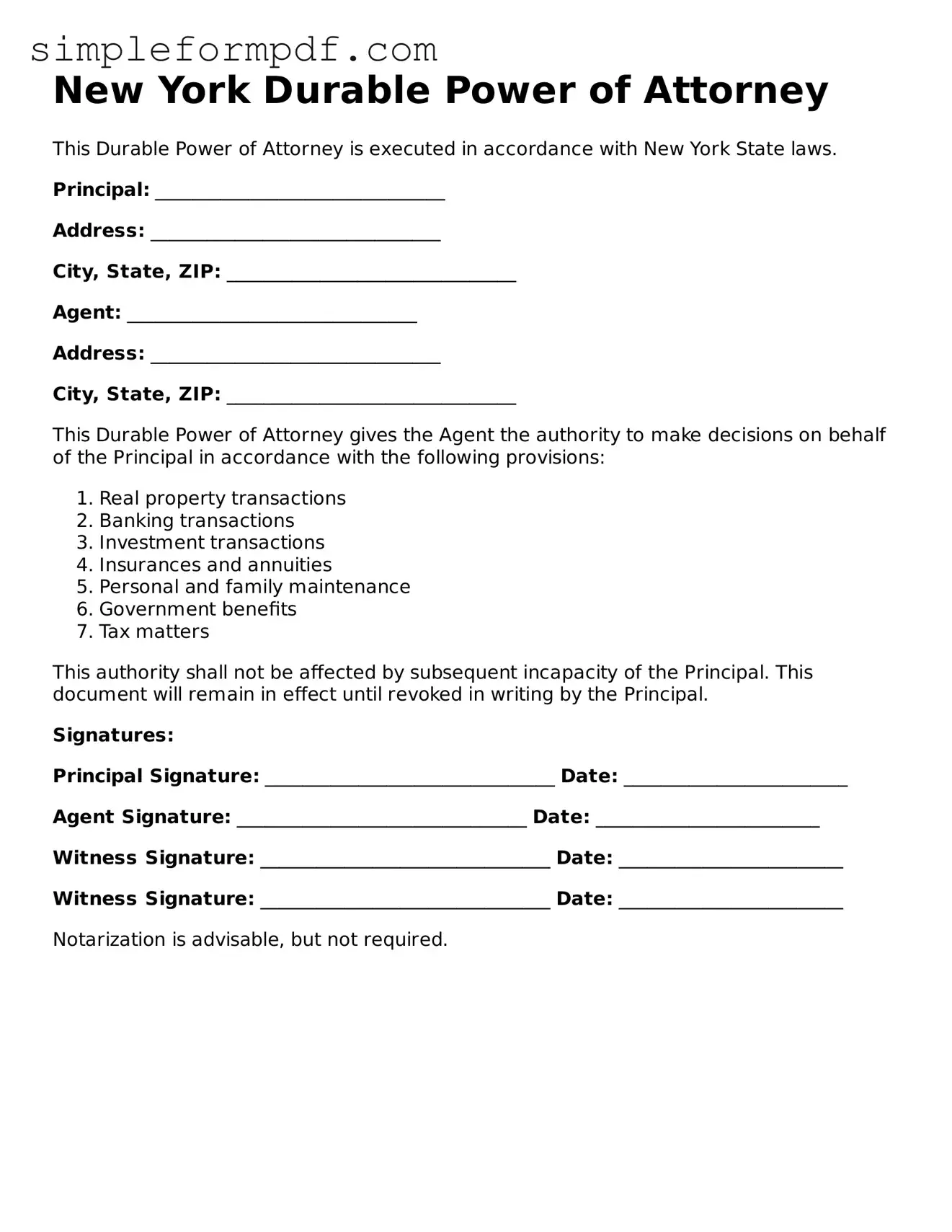Free Durable Power of Attorney Form for the State of New York
A New York Durable Power of Attorney form allows an individual to designate someone else to make financial and legal decisions on their behalf, even if they become incapacitated. This important legal document ensures that your wishes are respected and that your affairs are managed by someone you trust. To get started on filling out the form, click the button below.
Launch Editor

Free Durable Power of Attorney Form for the State of New York
Launch Editor
Need instant form completion?
Finish Durable Power of Attorney online in just a few minutes.
Launch Editor
or
Download PDF
